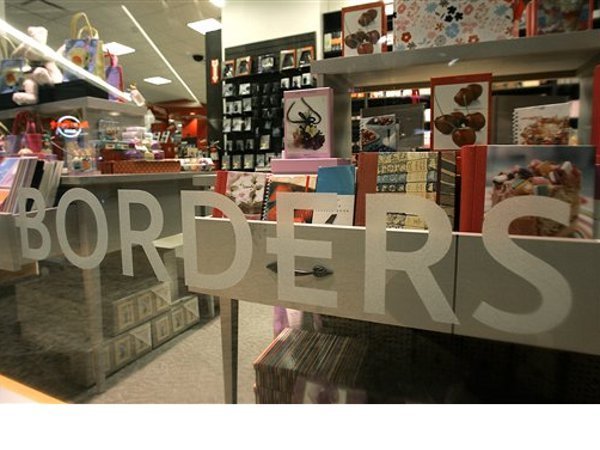
Borders announced Monday evening that it is throwing in the towel and liquidating its remaining 399 stores just a few months after it filed for Chapter 11 bankruptcy protection. A bankruptcy-court auction was originally scheduled for Tuesday, but was ditched due to the lack of bids. The liquidation is expected to start as early as this Friday, and the entire Borders chain will be no more by September.
As the second largest bookstore chain in the U.S., how did Borders fail? Naturally, most fingers are pointing to Borders’ too-little-too-late digital strategy, which left it in the dust when the tablet and eReader revolution took off. Indeed, that’s where Borders Group President Mike Edwards is firmly pinning the blame, as he explained in a statement: “We were all working hard towards a different outcome, but the headwinds we have been facing for quite some time, including the rapidly changing book industry, e-reader revolution, and turbulent economy, have brought us to where we are now.”
Others point out that Borders has been flagging for some time now, and while the eReader revolution certainly contributed to the company’s failure, it isn’t entirely to blame. Borders hasn’t turned a profit since 2006, which could be due, in part, to over-expansion and run-of-the-mill mismanagement, which once threatened Starbucks as well.
The cold, hard truth is that Borders is dead and we all need to high-tail our asses to the clearance sales. On the one hand, I’m glorying in Borders’ failure because I’m still bitter that they didn’t hire me ten years ago, because apparently they have a policy against hiring snarky 17-year-olds who list “slave driver” under previous employment. But on the other hand, I’m a little saddened by the closing. It does make you think… If the rise of eReaders is ultimately to blame for Borders’ demise, then it seems logical to assume that one day, there might not be any brick-and-mortar bookstores anymore. What would a world without bookstores look like?
For starters, weekends will be productive and frugal because you won’t be able to spend the day browsing for books at Borders. For middle-class soccer moms and suburban dads, Borders is your local big box, consumption haven. It’s where you go to pretend like you haven’t been stunted by your soul-crushing suburban lifestyle and are, in fact, still interested in art and literature, while at the same time feeding your consumerist craving to buy shit. Without Borders and other big box bookstores, you may have to start going to church.
Additionally, you’ll have to start planning birthday gifts in advance instead of swinging into the nearest bookstore on your way to the party to find a coffee table book as a last-minute birthday present, to make it look like you put thought into it. I’ll be the first to admit that I do this regularly. Forgot to get Grandma a present for her 80th birthday party? Easy: go to Borders to find an appropriate coffee table book, along with a cutesy card, and bam, you’re good to go.
And finally, when you’re out holiday shopping at the mall with your significant other, you’ll have to come up with somewhere else to kill time so you can take a break from shopping (or from your significant other) instead of saying, “I’m gonna go check out the bookstore for a bit. Meet you in Brookstone in an hour!”
What a brave new world…
Image source: pennlive.com


















